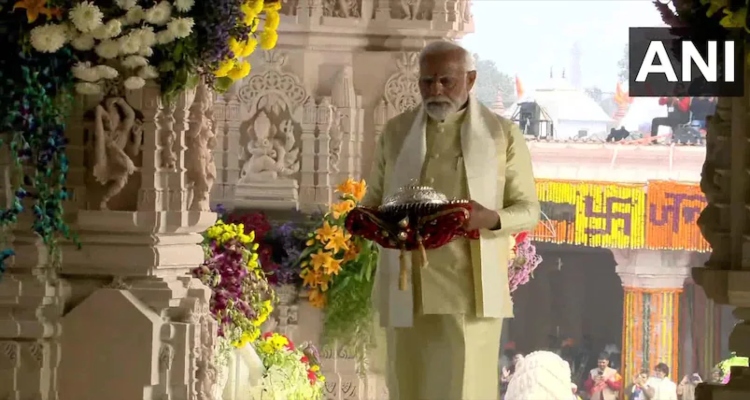
On Monday, the Supreme Court directed authorities in Tamil Nadu to adhere to legal procedures rather than relying on verbal instructions when it comes to the purported “ban” on special prayers and the live telecast of the consecration ceremony of the Ram temple in all temples across the state. Justices Sanjiv Khanna and Dipankar Datta presiding over the case emphasized that compliance with oral orders is not obligatory.
The bench acknowledged the statement made by senior advocate Amit Anand Tiwari, representing Tamil Nadu, asserting that there are no restrictions on ‘puja archana’ or the live telecast of the consecration ceremony at Ayodhya. Tiwari characterized the plea as “politically motivated.” The court instructed authorities to provide the reasons for their decisions and maintain records of applications approved for ‘Puja archana’ and live telecasts, as well as those rejected.
The bench also requested a response from the Tamil Nadu government by January 29 regarding the plea filed by Vinoj. The petitioner alleges that the DMK-led Tamil Nadu government has prohibited the live telecast of the “pran prathishta” of Lord Ram in all temples across the state, along with a purported ban on all prayers, ‘annadanam’ (poor feeding), and ‘bhajans’ on the occasion.
Contrary to these claims, Tamil Nadu Hindu Religious and Charitable Endowments MinisterAdhere to Legal procedures rather than verbal instructions: SC to Bureaucrats He clarified that there is no restriction on distributing ‘Annadhanam’ and ‘Prasadam.’ Babu dismissed the allegations as false news with underlying motives.`




